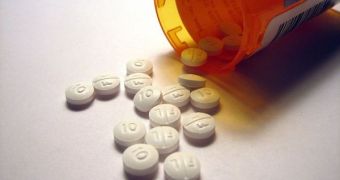A recent survey has shown the physicians prescribing depression drugs to their patients usually select between one of two antidepressants, because these are the medicines they prescribe more often, and also the cures they feel most comfortably using. Sadly, this method of attributing medication to people does not take into account the most important thing of all – what drugs are best for the patients themselves. These days may be coming to an end soon, as experts are currently working on a new biomarker test that will be able to recommend the best depression drugs based on each patient's brain structure.
Essentially, the new test will assess the brain structure and chemical composition in each of the individuals it is administered to, and will dictate the most likely medicine to cure depression. Also, the biomarker will predict how a patient will respond to the particular drug, which is something that, until now, physicians could only infer by observing its effects on the patient. Administering the test will be non-invasive, painless and fast, and will take about 15 minutes to complete, its creators say.
The method relies on using six electrodes, placed around a person's forehead, and their ear lobes. Setting up the devices does not hurt at all, as they are mere measuring devices. The biomarker is called ATR. In a set of experiments, scientists assessed its efficiency in predicting whether patients should remain on the drug Escitalopram (Lexapro), or if they should switch to Bupropion (Wellbutrin XL). Two study groups were created, one that remained on the former medicine, and one that was assigned to a different drug therapy, LiveScience reports.
The researchers then tracked for 49 days the 73 patients that remained on Escitalopram. The investigators were looking to see if the effects of the drug on the test subjects were conclusive with the predictions inferred from the ATR biomarker test. Amazingly, they report in two articles published in the September issue of the scientific journal Psychiatry Research, the biomarker was able to predict results with a 74-percent accuracy, a rate far higher than in any other existing method.
“Until now, other than waiting, there has been no reliable method for predicting whether a medication would lead to a good response or remission. And that wait can be as long as 14 weeks. So these are very exciting findings for the patient suffering from depression. The results are a milestone in our efforts to develop clinically useful biomarkers for predicting treatment response in MDD [major depressive disorders],” the lead author of the study, University of California in Los Angeles (UCLA) Semel Institute for Neuroscience and Human Behavior Professor of Psychiatry Dr. Andrew Leuchter, explains.
“Our results suggest that it may be possible to switch these patients to a more effective treatment quickly. This would help patients and their physicians avoid the frustration, risk and expense of long and ineffective medication trials. So the benefits to the individual and to society are enormous,” the expert concludes.

 14 DAY TRIAL //
14 DAY TRIAL //